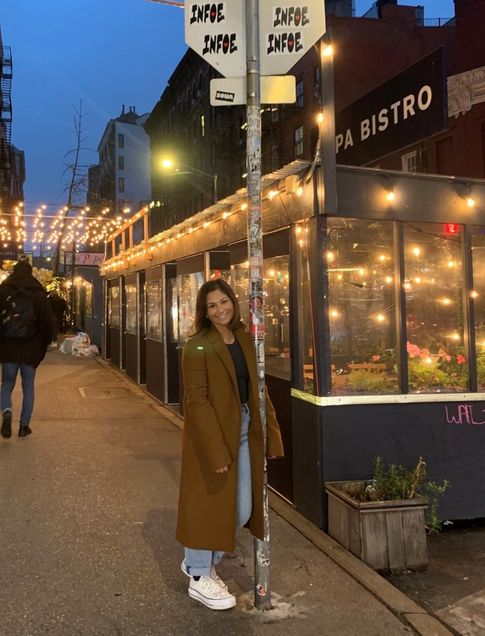Student Reflection: Eating Disorders in the South Asian Community
This personal reflection was written by MS in Nutrition student Shikha Advani (Sargent ’22) as part of the course Eating Disorders Treatment and Prevention and has been published on the Walden Behavioral Care blog.
In the South Asian community, there is a significant stigma around mental illness. In my childhood, I never heard the term eating disorder, and talking about mental illness was considered to be taboo.
Eating disorders do not discriminate but care still does
Along with the stigma, we cannot forget about the constant barriers Black, Indigenous, and People of Color (BIPOC) face when accessing treatment for any mental illness. Eating disorders, even now, are seen as something that affects white cis-gendered women in smaller bodies, however, eating disorders affect anyone regardless of ethnicity, race, body size, gender, or sexuality.
Additionally, there is still not enough research on how eating disorders affect those in the South Asian community. Within the U.S., there are not enough healthcare providers (dietitians and therapists included) that are South Asian and that understand eating disorders, Health At Every Size, intuitive eating, and fat positivity. This continues to reinforce the fact that we need more diversity, equity, and inclusion within larger systemic systems in order to combat these barriers that BIPOC constantly face.
Cultural representation a miss, or missing entirely
For us, South Asians, food is a huge part of our culture placed at the center of every event or holiday. Food is also used to show love and affection within our families. As children of immigrants, we’re told to be thankful for the food we are given. When you are experiencing an eating disorder, you feel the pain not only of your disorder but also hurting your parents when you refuse to eat.
Seeing the look on your parent’s face when you refuse to eat the butter chicken or palak paneer they have cooked for you is something that is hard to forget. It’s even harder when diet culture is constantly demonizing your own cultural foods and telling you to replace white rice with cauliflower rice (news flash: it doesn’t taste nearly as good!).
Along with the demonization of cultural foods, we see constant body shaming in the South Asian community. This comes from family (Indian aunties) as well as perpetuation in the media. There is little South Asian representation in the media, in healthcare, and in the eating disorder recovery world, and it is never a person in a larger body. There needs to be greater representation of BIPOC in larger bodies in the mainstream media where their character doesn’t revolve around them being in a larger body.
Harmful standards of “beauty”
With the lack of representation, lack of treatment, and stigma within the community there are also aspects of living in a predominantly white community that exacerbates the development of an eating disorder. As South Asian people, we are held to certain standards, and this standard often involves us trying to achieve Eurocentric ideals of beauty. At a young age, we are told to avoid the sun so we don’t get darker. We are told to not eat as much as the boys/men, and we are told to remove our facial hair to be more beautiful and feminine. We need to push back against the harmful standards of beauty in this society and see the beauty in cultural and size diversity.
Rejecting perfectionism
There is also an aspect of perfectionism in the South Asian culture where one constantly feels like they are not enough and need to be doing more. I was lucky enough to have access to treatment, but that didn’t stop me from falling victim to diet culture and years of pain and suffering from an eating disorder. I wish that I would have understood diet culture and how sneaky and vindictive it is when I fell into my eating disorder. With that, I wish I was able to understand the beauty of my culture and my body. I didn’t need to change, but rather society and the systemic barriers created by this world did.

Shikha Advani (Sargent ’22) is a master’s student at Boston University studying nutrition and dietetics. She has a particular interest in the treatment and prevention of eating disorders, which began after her personal recovery journey after battling an eating disorder. Shikha is extremely passionate about bringing greater awareness to eating disorders in marginalized communities and fighting against the harmful ideals of diet culture and hopes to help those struggling with eating disorders as an eating disorder dietitian.